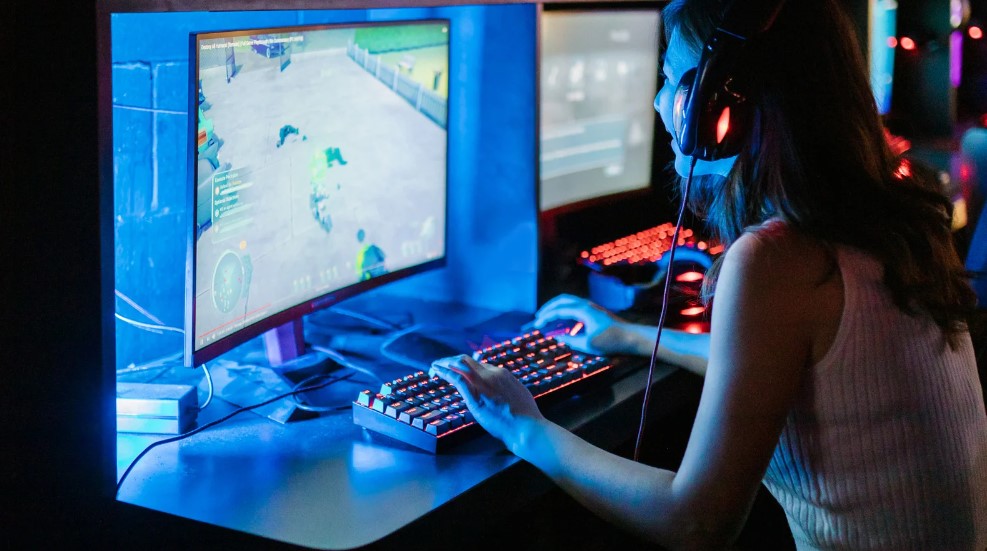
How Gaming Improves Problem Solving Skills and Creativity?
In the digital age, gaming has evolved beyond mere entertainment, becoming a powerful tool for personal development. Many people are beginning to recognize the cognitive benefits that gaming can offer, particularly in enhancing problem solving skills and fostering creativity.
As players navigate complex scenarios, engage in strategic planning, and collaborate with others, they are unknowingly honing skills that are crucial in real life. This blog explores how gaming contributes to the development of these essential skills.
The Connection Between Gaming and Skill Development
In recent years, the perception of gaming has shifted significantly. Once viewed primarily as a form of entertainment, gaming is now recognized for its potential to foster a variety of skills, including problem solving and creativity.
Many studies have highlighted how different genres of video games can enhance cognitive functions, providing players with unique challenges that require strategic thinking and innovative solutions.
Platforms like howtoplayguide.com provide resources and insights into how these games can serve as valuable tools for skill enhancement.
How Gaming Enhances Problem Solving Skills?

One of the most significant benefits of gaming is its ability to improve problem solving skills. Many games, particularly puzzle and strategy games, challenge players to think critically and devise solutions under time constraints.
For instance, games like “Portal” and “The Witness” require players to navigate complex environments and solve intricate puzzles, honing their analytical thinking.
This process of trial and error encourages players to experiment with different approaches, learning from their mistakes and developing a more adaptable mindset.
Fostering Creativity Through Gameplay
Gaming is not just about solving problems; it also plays a crucial role in fostering creativity. Many games allow players to create their own worlds, characters, and narratives.
Titles such as “Minecraft” and “Roblox” empower players to use their imagination to build and design, pushing the boundaries of creativity.
This freedom to experiment in a virtual space translates to real-world benefits, as individuals who engage in creative gameplay are often more inclined to think outside the box and generate innovative ideas in various aspects of life.
The Role of Strategy Games in Cognitive Growth
Strategy games, such as “Civilization” and “StarCraft,” require players to manage resources, plan ahead, and make decisions that affect the outcome of the game. These games demand a high level of strategic thinking and foresight, skills that are transferable to real-life situations.
Players learn to assess risks, weigh options, and adapt their strategies based on changing circumstances, which can enhance their ability to solve problems in everyday life.
Engaging with these complex scenarios promotes critical thinking and helps players develop a structured approach to tackling challenges.
The Social Aspect of Gaming and Collaborative Problem Solving
In addition to individual skill development, gaming also promotes social interaction and teamwork. Multiplayer games require players to collaborate, communicate, and strategize together to achieve common goals.
This aspect of gaming can enhance interpersonal skills as players learn to navigate group dynamics and leverage each other’s strengths.
Games like “Overwatch” and “League of Legends” exemplify this collaborative nature, encouraging players to work together to solve problems and achieve objectives, further refining their problem-solving abilities in a social context.
Real-World Applications of Skills Gained from Gaming
The skills acquired through gaming have real-world applications that extend beyond the screen. Many employers now recognize the value of gaming experience in job candidates, particularly in fields that require quick thinking, creativity, and collaboration.
The ability to adapt to new challenges and think critically under pressure is invaluable in today’s fast-paced work environment.
Furthermore, individuals who regularly engage in gaming often find themselves more equipped to handle complex tasks and navigate unexpected obstacles, showcasing the profound impact gaming can have on problem-solving and creativity.
Conclusion
Gaming is not merely a pastime; it is an influential medium that cultivates vital skills applicable to everyday life. Through enhanced problem-solving abilities and creativity, gamers are better prepared for challenges both in and out of the digital realm.
As society continues to evolve, recognizing the value of these skills becomes increasingly important. By engaging with gaming as a developmental tool, individuals can harness its benefits and apply them to various facets of their lives.


